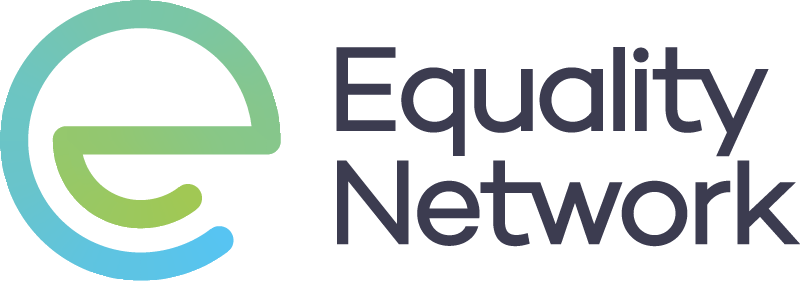


Our Work >
Equality Network recognises that LGBTI people exist in all intersections of the population and that those with intersectional identities are frequently subject to multiple intersecting forms of discrimination and exclusion. We strive to embed an intersectional approach in all our work, listening to and amplifying the voices of people with lived experience of all intersections and continually working to improve our outreach and inclusion work.
In addition to an overall intersectional approach, we currently have a team dedicated to the intersections of disability, neurodiversity and LGBTI+ identities.
The term intersectionality was coined by Kimberlé Crenshaw, a prominent American civil rights advocate and a leading scholar of critical race theory.
Intersectionality is a way of looking at the overlap of social identities such as race, gender, sexual orientation, and disability. The intersectional approach helps us recognise specific types of systemic oppression and discrimination experienced by people who fall into more than one oppressed group.
Our guidance for service providers includes an easy to follow list of key principles, a self reflection quiz and a film of personal testimonies which are all available to view and download on the link below.
The exclusion and erasure of intersectional people from our communities is reflected in service provision. Often LGBT-focused organisations have little knowledge of, for example, race issues. This can lead to racist attitudes and practices carried by staff and other service users remaining unchecked, thus creating an unsafe space for a minority ethnic LGBT person who wants to access the services.
Our intersectional work was aimed at helping organisations become more inclusive of all their service users and respect every part of their identity. We worked with a variety of organisations with diverse expertise, exchanged awareness-raising sessions, and spoke to intersectional service users. This extensive partnership work revealed that there are many ways to be inclusive without spending any extra money and that learning to be inclusive of people with complex identities benefits every service user.
Out to Access was Scotland’s first funded project that focused on the intersections of disability with gender identity and sexual orientation. The project ran between 2011-2012 in partnership with Inclusion Scotland and Glasgow Disability Alliance (GDA), and was funded by the Scottish Government Equality Unit.
The project promoted the inclusion of Disabled Lesbian, Gay, Bisexual and Transgender (D/LGBT) people in services through community champions, action groups, training and research.
Our Putting the Pieces Together report was published in 2014.
EveryoneIN was Scotland’s first funded project that focused on the intersections of race and religion with gender identity and sexual orientation. The project ran between 2008-2012 in equal partnership with Black and Minority Ethnic Infrastructure in Scotland (BEMIS) and had been previously funded by the Equality and Human Rights Commission (EHRC).
EveryoneIN promoted the inclusion of Minority Ethnic Lesbian, Gay, Bisexual and Transgender (ME/LGBT) people in services through community champions, action groups, training and research.
We produced the first Scottish research reports on the inclusion of ME/LGBT people in services: the EveryoneIN report, 2009, and on the situation for LGBT asylum seekers and refugees in Scotland: the Sanctuary, Safety and Solidarity report, 2011. The latter was accompanied by a practical guide, which received an updated edition in 2021.
This project researched the participation of disabled lesbian, gay, bisexual and transgender (D/LGBT) people in community groups. On Safe Ground was funded by Communities Scotland, the Scottish Executive’s housing and regeneration agency as part of its equalities work. The research was carried out by Avanté Consulting, working with the Disability Rights Commission and the Equality Network.
Resources referenced in the Including Intersectional Identities guidance
30 Bernard Street
Edinburgh EH6 6PR
+44 (0) 131 467 6039
en@equality-network.org
Equality Network is a national lesbian, gay, bisexual, transgender and intersex (LGBTI) equality and human rights charity.
The Equality Network is a registered Scottish charity: SC037852, and a company limited by guarantee: SC220213.

We are grateful for funding from the Scottish Government